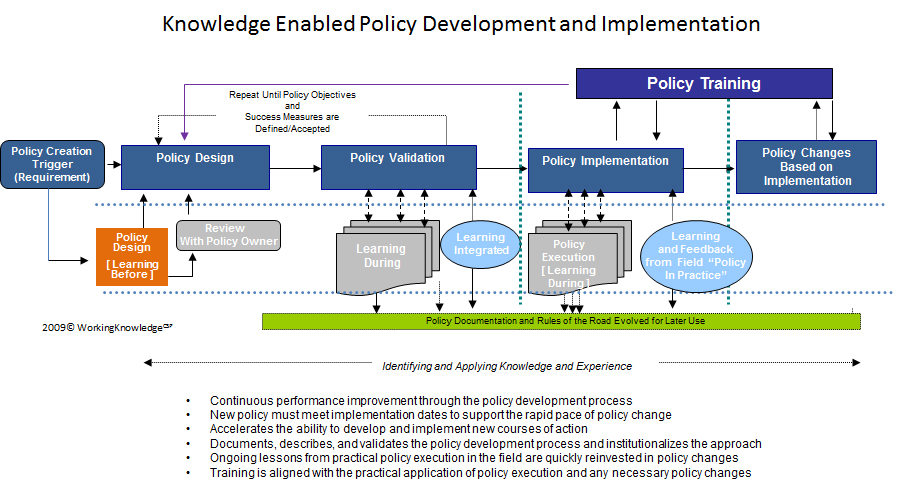 Improving Acquisition Policies and Processes – Knowledge Enabled Policy Development and Implementation: Policies and processes embody the basic principles that govern the way an acquisition organization executes its mission. Ideally, policies and processes clearly define staff roles and responsibilities, encourage acquisition teams to work together effectively to procure desired goods and services, and establish expectations for stakeholders to strategically plan acquisitions and proactively manage the acquisition process.
Improving Acquisition Policies and Processes – Knowledge Enabled Policy Development and Implementation: Policies and processes embody the basic principles that govern the way an acquisition organization executes its mission. Ideally, policies and processes clearly define staff roles and responsibilities, encourage acquisition teams to work together effectively to procure desired goods and services, and establish expectations for stakeholders to strategically plan acquisitions and proactively manage the acquisition process.
Knowledge Management (KM) involves the development of tools, processes, systems, and behaviors to improve the creation, sharing and use of knowledge critical for decision-making. A fundamental component of effective decision making is having informed policies that can effectively guide decision making or process execution… particularly true in the acquisition profession.
Our KM solution for policy analysis and development focuses on creating a knowledge sharing framework to enable policy-makers to engage in candid discussion, debate, story-telling and scenario building in order to understand the net strengths and opportunities that new or changed policy can provide.
It is essential that policy development or policy change is” knowledge based” in that it involves direct and collective input from those that have the responsibility for executing the policy and who are most impacted by the outcome of the execution of that policy. These practitioners likely have critical knowledge in the form of learnings or insight that can identify gaps that can be guides to more effectively shaping or defining policy so that the outcome desired is more easily achieved, and in the end, more effective.
Therefore, it makes sense to capture the knowledge from process or operations execution, make sense of the captured knowledge, and then use this knowledge to make changes in how the process is executed. What follows not only can be the development of new policy or a change in the policy based on learned lessons, but also can be a change in the training associated with that process that is necessary to embed the policy into how the work gets done. Learnings from execution can drive policy development or change, and, policy development or change can drive changes in execution.
It is also important to identify, in context, measures which can be used to improve the quality of policy dialogue and debate and which in turn contribute to more effective policy formulation.
This innovative and repeatable approach to policy development not only reduces the time it takes to craft, define, and execute new or changed policies, but also is a necessary mechanism or improving the effectiveness of policy management based on what can be quickly learned from execution of policy in the field.


